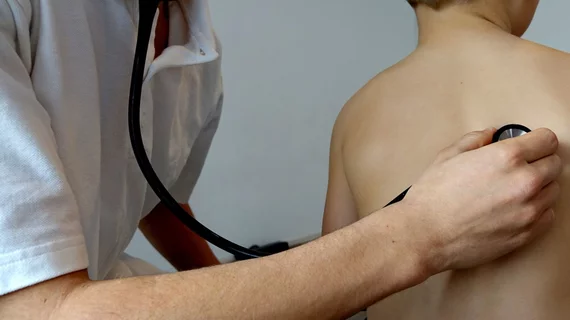Algorithm identifies respiratory illness by the sound of a child’s cough
Combining AI with advances in acoustic engineering, Australian researchers have developed an algorithm that can help diagnose common pediatric respiratory conditions such as asthma, croup and pneumonia.
Lead author Paul Porter, MD, of Curtin University and colleagues used recorded sounds of 585 children aged one month to 12 years old coughing in a number of ordinary clinical environments.
Comparing the performance of their algorithm against consensus clinical diagnoses made by a panel of pediatricians, the researchers found their tool correctly diagnosed asthma 97% of the time and correctly ruled it out with 91% accuracy.
The accuracy of the automated technique was lower for five other conditions but never fell below 81% for either sensitivity or specificity.
“[T]his technology has a role as a high-level diagnostic aid in the assessment of common childhood respiratory disorders,” the authors concluded in their study report, which was published online June 6 in Respiratory Research.
In their discussion, Porter and team add that their system could prove valuable as a diagnostic aid in places lacking clinical expertise, including in emergency settings where pediatric patients are being triaged for possibly urgent treatment.
They further note that their algorithm could be used with smartphone apps as the sound-acquisition mechanism.
“Advantages of using these devices include they meet acoustic requirements (bandwidth, noise levels and transduction-sensitivity) needed for respiratory sound recording; are ubiquitous devices even in the developing world; possess substantial computing power allowing for analyses with no requirement for connectivity; enable non-contact assessments ideal for infection control and for use in children or non-compliant subjects; and are usable in realistic clinical settings where background noise is a factor,” the authors write. “This allows for an all-in-one data acquisition, analysis and decision-making device.”
The study is available in full for free.

